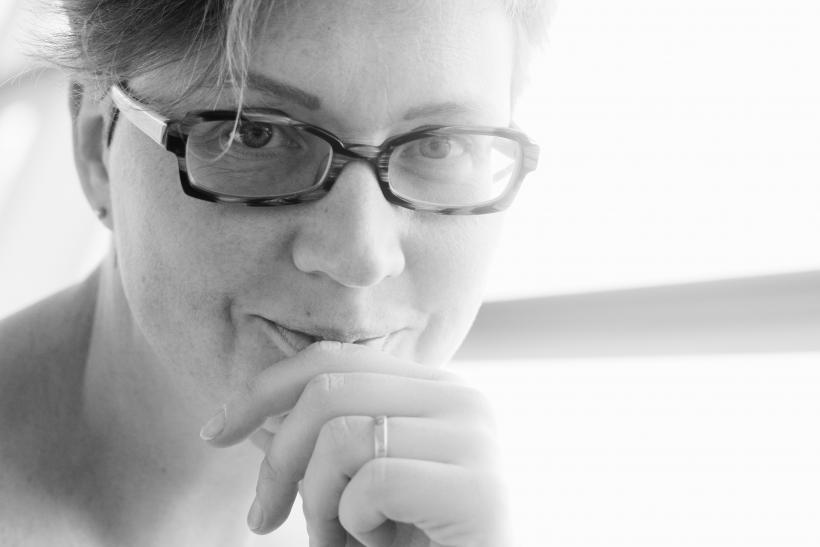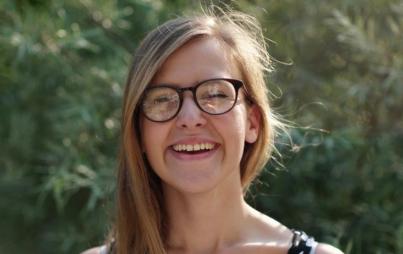
Unfortunately I held onto the dogmatic perfectionism.
When I was a Christian, one of my favorite books was The Ragamuffin Gospel by Brennan Manning. He was a former Franciscan priest who struggled with alcoholism for most of his life. Through his struggles he came to believe that God’s grace was big enough for a ragamuffin like him, and that he didn’t have to do anything to earn God’s love. Because of this amazing grace, he was finally able to be okay with his own imperfection.
“To live by grace means to acknowledge my whole life story,” he wrote, “the light side and the dark. In admitting my shadow side I learn who I am and what God's grace means.”
While I am no longer a Christian — mostly because I read all the parts of the Bible Manning didn’t mention — I still love the idea of embracing my inner ragamuffin. Like Manning, I’m a walking paradox. I love and I hate. I’m peaceful and I’m violent. I’m honest and I’m hypocritical. I fight for liberation and I perpetuate systems of oppression. It’s just now, at 34 years old, that I’m beginning to be okay with it. As the old song goes, “I wish that I knew what I know now when I was younger.”
Surprisingly, this need for perfection didn’t come from childhood religious indoctrination. I was actually raised as a Wedding and Funeral Christian; my family didn’t go to church unless someone’s was getting either married or buried. Neither were my family abusive perfectionists who never thought I was good enough for anything. I've just always had this idea in the back of my head that there were only two kinds of people of the world: good people and bad people.
There was no room for fallibility or even a gray scale of good and bad, and so whenever I did something bad as a child, I thought I was literally Hitler.
When I became a practicing Christian at age 17, things changed slightly. I still thought I was literally Hitler, but so was everyone else, since “all have sinned and come short of the glory of God” (Romans 3:23). After a while, though, I realized that Christianity was teaching me I had to repent just for being human, so after looking into the faith and finding no evidence that any of it was true, I became an atheist.
Unfortunately I held onto the dogmatic perfectionism. In fact, I’ve incorporated it into my social justice-oriented secular humanist activism.
When I first started reading up on social justice and intersectional feminism, I learned that we all inadvertently perpetuate forms of oppression in society. If you grow up in a society that says, “All people are equal, but some are more equal than others” (to borrow a famous Orwell quote), part of that message is going to end up embedded into your subconscious mind. Some people think the concept of privilege is just a left-wing version of Original Sin, but I say it’s more like indoctrination. No one is born thinking certain groups of people are The Other; it comes from the way we are raised. Unfortunately, part of me doesn’t believe that part; I still believe I was born wretched.
I spent the rest of the day thinking about every fuck-up I ever made in made in my life and how I felt I couldn’t do anything right. At my lowest point, I wrote on my Facebook wall, “I wish I was never born so I don’t have to deal with this world.”
It also doesn’t help that, through podcasting and writing, I’ve developed somewhat of a following. Granted, it’s not a huge following, but apparently since I’m a pro-social justice atheist (especially in the wake of this year’s shitty MythCon conference where someone thought it would be a good idea to give a mic to a racist and sexist YouTuber), a lot of people look up to me as a shining beacon of hope. On one hand I’m flattered, but on the other hand I keep thinking, “I will fail you some day. Just wait.” And so I constantly live in a state of tension trying to be the social justice badass people (I assume) think I am.
This is especially true in the wake of #MeToo and the fact that the atheist community is full of famous speakers that have been accused of sexual misconduct. Despite not being a cis man, I spent the first 30 years of my life believing I was one, so I know I picked up some of that “Some people are more equal than others” mentality along the way. Most of my friends think I’m doing a good job calling out sexism and misogyny in our movement, but there was one small incident where that old dogmatic perfectionism almost killed me.
You Might Also Like: I'm Done Trying To "Prove" My Non-Binary Identity
Looking back, it wasn’t that big of a deal; I basically made a bad #NotAllMen joke on a friend’s Facebook page. Yet I failed to recognize the difference between guilt and shame, and instead thought that my bad joke was proof that I’m a monster. I spent the rest of the day thinking about every fuck-up I ever made in made in my life and how I felt I couldn’t do anything right. At my lowest point, I wrote on my Facebook wall, “I wish I was never born so I don’t have to deal with this world.” I stepped away from the Internet to take a shower, but when I came back I saw a million PMs asking me if I was okay.
“Does this mean you all like me?” I wrote on my Facebook wall, “Warts and all?” Tears gushed from my eyes as all my friends replied, “Yes.”
The next day was my weekly therapy appointment, so I told my therapist everything that happened. She asked why I thought this was evidence that I was a misogynistic piece of shit, and I told her how “woke” people don’t do shit like this. She then explained to me that we all look through the lenses of our culture, and that in a way we’re all sexist. “If I say I’m going to the doctor,” she said, “what do you immediately think of? A man, right? If I say a nurse saw me, you immediately think of a woman, right? We know women can be doctors and men can be nurses, but traditional gender norms are still stuck in our heads. It doesn’t mean we’re misogynists; it’s just the culture in which we live.” Our session ended with her telling me to repeat this mantra to myself: “I’m not good. I’m not bad. I’m just okay.”
And that’s what I’m currently trying to remind myself. We’re all struggling to be decent human beings in a society that sees certain people as less-than, so what I try to do is to be open and honest about both my light side and dark, like Brennan Manning. Maybe that’s how grace — however one sees it — gets in.








